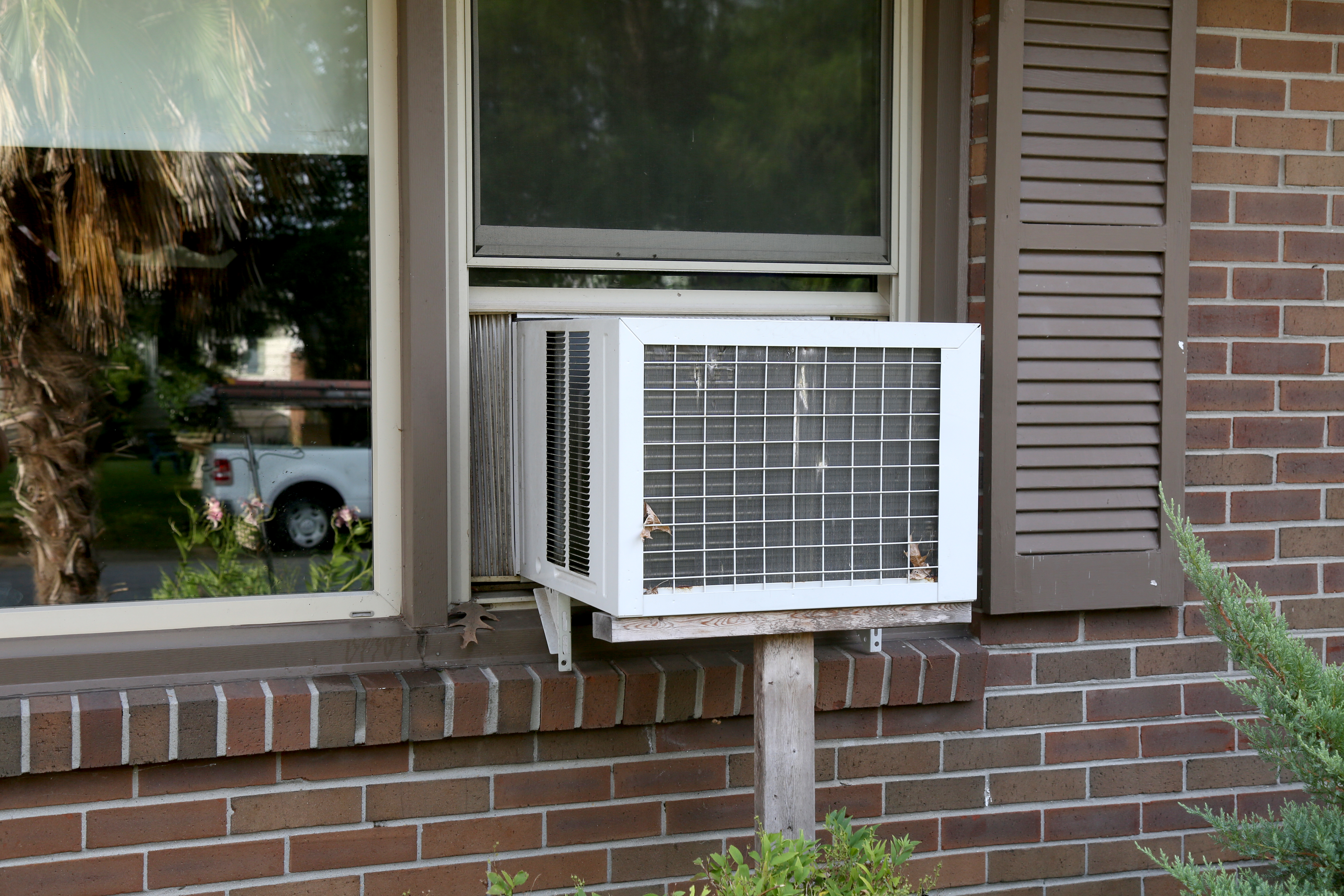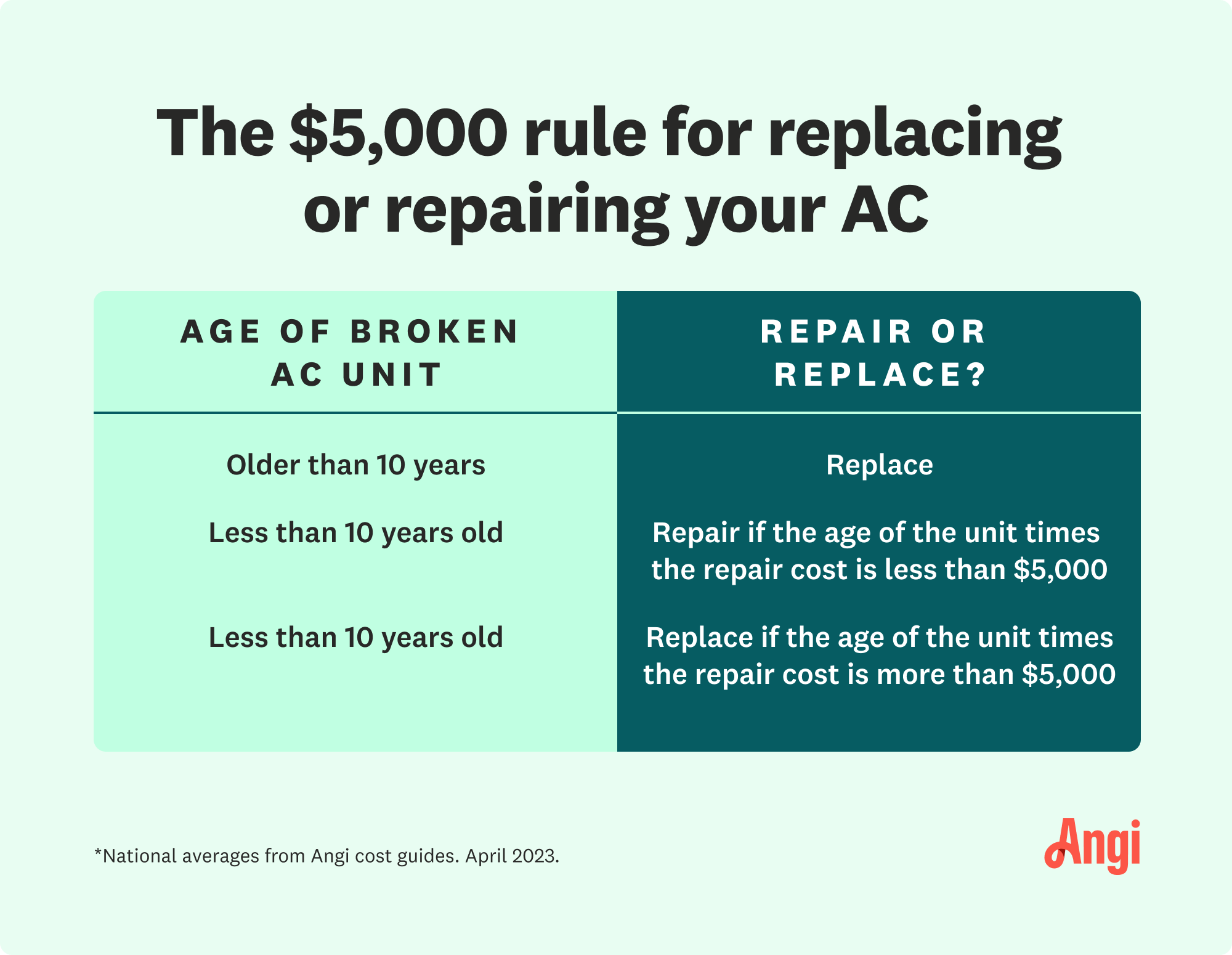
If your air conditioner won’t turn on or makes chattering noises, you might have a bad contactor. Learn more about AC contactor replacement costs in this guide.
Heating and air conditioning service costs depend on your project and location. Check with a local pro for your specific job.
Central AC is the most common in Phoenix and costs $6,892 to replace on average.
Phoenix is the hottest city in the U.S., with summer temps of 90–107 degrees Fahrenheit.
The hard, dusty desert soil makes it hard to install geothermal AC, raising the cost.
AC units in Phoenix must have at least 14 SEER, but higher SEER is better.
City permits add $180–$200 to the project total.
Phoenix, Arizona, is the hottest city in the U.S., so homeowners here know the importance of having working air conditioning. In order to beat the heat, Phoenix residents can expect to spend $6,892 for AC replacement, with the total cost ranging from $5,091 to $8,837. Larger homes require more powerful AC systems and more ductwork, so the cost will be higher. Smaller homes or simpler AC units, like a portable AC or a ductless system, cost less. The SEER rating of your unit also affects the total cost.
AC replacement in Phoenix averages $6,892, but the total cost can range widely from $2,500 to $12,700 depending on the type and size of the unit, how efficient it is, and even the amount of space you need to cool.
The bigger your home, the more cooling power you’ll need, meaning you’ll spend more to replace AC in a 3,000-square-foot home compared to a 1,200-square-foot home. The median home size in Phoenix is 2,260 square feet.
| Home Size (Square Feet) | Tonnage | AC Cost |
|---|---|---|
| 1,200 | 1.5–2 | $2,500–$5,000 |
| 1,500 | 2–3 | $3,000–$7,000 |
| 1,800 | 2.5–3 | $3,250–$7,000 |
| 2,000 | 3–4 | $3,500–$8,000 |
| 2,200 | 3.5–4.5 | $3,750–$8,500 |
| 2,500 | 4–5 | $4,000–$9,000 |
| 3,000 | 5+ | $9,000–$12,700 |
The size of your AC unit is measured by tonnage, or how much heat it can remove in one hour, which is then expressed as British Thermal Units (BTUs).
BTU, or British Thermal Unit, is a unit that measures how much energy it takes to raise the temperature of one pound of water by one degree Fahrenheit. For heat pumps, each ton of capacity is equivalent to roughly 12,000 BTUs.
Bigger is not always better—the appropriate tonnage and BTU rating of your AC should match the size of your home. In Phoenix, one tonnage per 500 square feet is a general estimate, with most homes requiring 2 to 5 tons. Consult with an AC installer in Phoenix, Arizona, to determine what size AC you need.
| Tonnage | BTUs | Cost |
|---|---|---|
| 1 | 18,000 | $2,500–$5,000 |
| 2 | 24,000 | $3,000–$6,000 |
| 3 | 36,000 | $3,500–$7,000 |
| 4 | 48,000 | $4,000–$8,000 |
| 5 | 60,000 | $4,500–$9,000 |

Central AC is common in Phoenix because it reliably cools the entire home. However, you can also consider alternatives like window units, portable AC, or even a ductless system. The type of AC you choose will impact the cost.
| Type of AC | Average Cost | Pros | Cons |
|---|---|---|---|
| Central | $5,000–$9,000 | Whole-house cooling | Difficult to install |
| Window | $60–$400 | Low cost | Prone to dust and debris buildup |
| Portable | $80–$700 | Moves from room to room | Limited cooling capacity |
| Ductless | $7,000–$17,000 | No ductwork installation required | Takes up wall space |
| Geothermal | $11,000–$35,000 | Energy-efficient | Hard to install in desert soil |
With temperatures that average over 90 degrees Fahrenheit, Phoenix households should prioritize energy-efficient units to keep cooling costs down. For AC units, efficiency is measured by SEER, or Seasonal Energy Efficiency Ratio. In Phoenix, the SEER must be at least 14, as required by the U.S. Department of Energy.
The more efficient the unit, the more it will cost up front. However, you’ll save more in the long run.
| SEER | Cost |
|---|---|
| 14–15 | $2,500–$7,000 |
| 16–17 | $3,000–$8,000 |
| 18–19 | $3,500–$9,000 |
| 20+ | $4,000–$12,700 |
As a major city, Phoenix has slightly higher costs for materials and labor compared to smaller cities or rural areas. Plus, you’ll need to consult the City of Phoenix Planning & Development Department and Office of the Ombudsman for building codes and permits.
Here are the costs you can expect for hiring a pro for your AC replacement in Phoenix:
The cost to hire an AC pro in Phoenix is $1,500 to $4,000 total. Pros commonly charge $80 to $150 per hour. Consider whether repairing versus replacing your AC is a better deal. If repairs cost more than 50% of the cost of a replacement, it’s time to invest in a new system.
Phoenix bases permit costs on the total cost of the project. Costs include a base fee of $150 for projects up to $1,000, plus another $9 for every $1,000 in the cost of the project up to $10,000.
So, if your AC replacement cost in Phoenix, Arizona, totals $5,000, you’d spend $186 on permits. However, check with your HVAC pro or the city to determine the exact total based on your specific project.
You’re not likely to need additional services when you just have your AC replaced. However, if you’re upgrading from a handful of window units to central AC, for example, you’ll need some electrical and plumbing work for a more powerful system.
Electrician: An AC system has to work really hard in Phoenix to keep your home’s interior cool. Hire a local electrician to make sure your AC is on a dedicated circuit with enough power, up to 60 amps, to effectively cool your home. Hiring an electrician in Phoenix costs $164 to $567.
Plumber: Your AC system needs a drain line to prevent condensation from leaking into your unit or your home. An HVAC pro often handles drain line installation. However, you may need to hire a plumber to assist. Hiring a plumber in Phoenix costs $198 to $585.

If your AC replacement involves a new central AC unit or a ductless system, it can increase the value of your home by up to 10% in Phoenix’s hot desert climate. Adding an AC has an ROI of 30%. However, installing a window unit or portable system won’t add to your home’s value.
Home is the most important place on earth, which is why Angi has helped more than 150 million homeowners transform their houses into homes they adore. To help homeowners with their next project, Angi provides readers with the most accurate cost data and upholds strict editorial standards. We extensively research project costs to develop the pricing data you see, so you can make the best decisions for you and your home. We rely on reputable sources, including the U.S. Bureau of Labor Statistics, academic journals, market studies, and interviews with industry experts—all to ensure our prices reflect real-world projects.
Want to help us improve our cost data? Send us a recent project quote to [email protected]. Quotes and personal information will not be shared publicly.
From average costs to expert advice, get all the answers you need to get your job done.

If your air conditioner won’t turn on or makes chattering noises, you might have a bad contactor. Learn more about AC contactor replacement costs in this guide.

Springing for HVAC maintenance costs may seem like an extra—and easy-to-ignore—item on your checklist, but it will save you money in the long run.

Regularly replacing your HVAC filter regularly is vital for a healthy system. Learn how much an HVAC filter replacement costs with this informative guide.

Learn how to add Freon to your AC unit with our step-by-step guide, and keep your home cool with a properly functioning AC unit.

Energy bills rising? Here’s how to perform a DIY duct leakage test to locate any damage in your ductwork and restore your energy-efficient home.

Not sure who to hire to install radiant floor heating? Learn which pros handle radiant floor heating installation and how the work comes together.